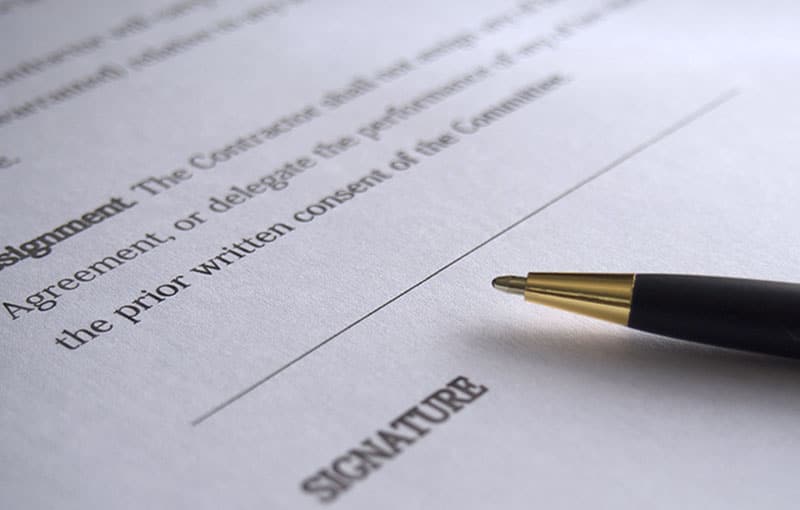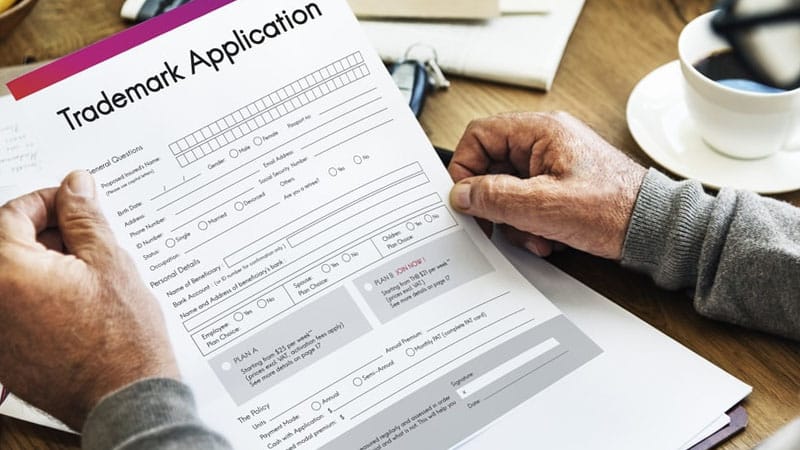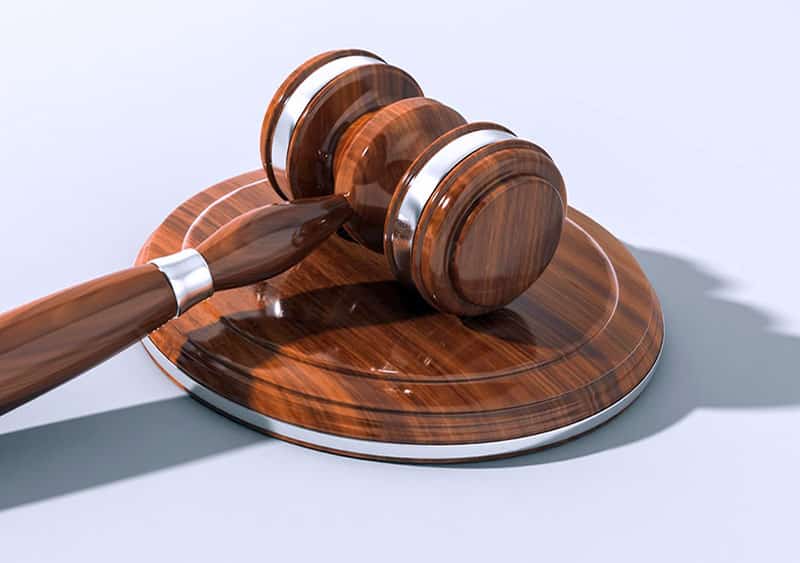Arizona Trademark Attorneys
Best Trademark Protection Law Firm in Arizona
Imagine that your family has slaved away building up the reputation and good name of your cupcakery, “Jimmy’s Delights.” In fact, your name is on your business cards, your delivery vehicle, and your boxes. While you are visiting friends in a neighboring state, you are puzzled and offended to see the same name in a similar font on a nearby cupcakery. What should you do in this situation? Is the knockoff cupcakery in the wrong? Can you prevent them from continuing to use your name? If so, how?
If you have or are currently experiencing something similar to this, you might be the victim of trademark infringement. Before you pick up the phone and call an experienced Arizona intellectual property attorney, here is a brief summary of what constitutes trademark infringement, including possible remedies you might have as a victim of such misconduct.
What is a trademark?
According to the United States Patent and Trademark Office, “[a] trademark is a word, phrase, symbol, and/or design that identifies and distinguishes the source of the goods of one party from those of others. . . .
Some examples include: brand names, slogans, and logos. The term ‘trademark’ is often used in a general sense to refer to both trademarks and service marks.” While registering your trademark is not actually required by law, it is always a good practice to register it for the most complete protection under the law.
Why Are Trademarks Important?
Understanding how trademarks work is critical to your business, especially when it comes to competing against other businesses on the market.
Top-Rated Arizona Trademark Lawyers
Whether you are looking to register a trademark with the US Patent and Trademark Office (“USPTO”), need experienced Mesa trademark litigation attorneys, or need trademark infringement defense lawyers in Scottsdale, the top-rated trademark attorneys at Denton Peterson Dunn, PLLC can help. Contact the #1 trademark law firm in Arizona today to schedule a consultation.
✓ Mesa Trademark Lawyers
✓ Gilbert Trademark Attorneys
✓ Trademark Law Firm in Tempe
✓ Phoenix Trademark Attorneys
✓ Scottsdale Trademark Lawyers
✓ Chandler Trademark Law Firm

Trademark Attorney Near Me
Need a trademark attorney near you in Scottsdale, Mesa, Phoenix, or another Valley city? The experienced Arizona trademark attorneys and business lawyers at Denton Peterson Dunn, PLLC provide top-rated trademark legal services to businesses and individuals around the Phoenix Valley.

Arizona Trademark Law Firm
If your trademark has been infringed upon, trust the Mesa business lawyers at the #1 Arizona trademark law firm, Denton Peterson Dunn, PLLC Our AZ business law firm has years of experience with trademark registration and trademark infringement cases in Arizona and around the United States.

AZ Trademark Legal Advice
Have questions about trademark registration with the US Patent and Trademark Office (“USPTO”), or are you unsure whether you have a trademark infringement or dilution case? Contact our Scottsdale business attorneys today for top-rated Arizona trademark legal advice or AZ trade name legal help.

Local AZ Trademark Lawyers
When you’re in need of experienced trademark services in Mesa, contact our top-rated, local trademark lawyers in Arizona. Our local Phoenix business attorneys have years of experience providing trademark legal help and AZ trademark infringement litigation.

AZ Trademark Registration Lawyer
Need to register a product trademark, AZ trade name, or brand trademark? The Arizona litigation attorneys at Denton Peterson Dunn, PLLC are trusted trademark registration attorneys. They will guide you through the complex trademark registration process.

Trademark Lawyer Nearby
If you need an experienced trademark attorney nearby, contact the local business lawyers in Arizona at Denton Peterson Dunn, PLLC Our Arizona trademark law firm provides trademark legal services in Mesa, Phoenix, Scottsdale, Chandler, Gilbert, and surrounding areas.
Who enforces trademark laws?
Trademarks are regulated under both federal and state law. Even though trademarks originally developed from state common law, federal law has become the predominant workhorse, providing the most extensive source of trademark protection. The primary federal statute relating to trademark infringement is the 1946 Lanham Act, amended in 1996.
Arizona Trademark Protection Laws
Arizona state trademarks are governed by Arizona Revised Statutes (A.R.S.) 44-1441-56 et seq. If you plan to operate under your brand name exclusively in Arizona, then you might be fine to register only in Arizona. Generally, it is better practice to get a federal trademark as opposed to a state trademark because of the breadth of protection provided as well as its numerous other benefits (as will be discussed below).

How to Acquire a Trademark
Registering a trademark is fairly quick and straightforward. In fact, you will likely finish your online application in less than a couple of hours. The most efficient way to register is by going to the U.S. Patent and Trademark Office’s Web site, www.uspto.gov.
Before completing the application, it is critical that you do some research on the Trademark Electronic Search System (“TESS”) to make sure that no businesses have already registered a same or similar trademark as you. If an entity has taken the name, then you might be okay to proceed with your trademark as long as your business will operate under a different category of goods or services offered. When you are registering your trademark, the challenge comes in making your trademark description just narrow enough to be accepted, but broad enough to gain greater protection. Often an experienced Gilbert business lawyer can help with that process.
Register with Experienced AZ Trademark Attorneys
After submitting the application, you should receive a response indicating the acceptance or denial within six months of filing. While filing an application for the registration of your trademark is quick and easy on its face, the nuances associated with gaining the broadest protection possible for your brand can actually be quite complicated. For help registering your trademark with the U.S. Patent and Trademark Office, contact an experienced AZ intellectual property attorney today.
Andre L. – Gilbert
“I don’t believe that we could have selected a better person to represent us in our case! Brad is very competent, knowledgeable about the law and yet quite accessible at the same time. We always knew what was the status of our case from the beginning to the end and never felt that our case wasn’t a priority for his office. I highly recommend him!”
★★★★★
Re-Posted From Yelp
Olivia M. – Mesa
“I highly recommend this law firm. I used them recently for a small business issue I was having. The attorney was very hands-on and walked me through the whole process. The consultation was very informative and Tim went out of his way to call me and keep me in the loop throughout the entire situation. Highly recommend!”
★★★★★
Re-Posted From Yelp
How to Register a Trade Name or Trademark in Arizona
In practice, it is much more common to register your trademark with the U.S. Patent and Trademark Office because it carries more weight and doing so will allow you to sue in any court in the land. However, in certain cases, you might find that state trademark protection is sufficient for your needs.
- Conduct a preliminary trademark search to make sure your trademark, or a similar trademark, is not already registered. This can be accomplished on the Trademark or Tradename Application page on the Arizona Secretary of State’s website.
- Fill out the short Trademark Application, providing “a written description that fully describes your mark,” also including the name of your business and attach any necessary samples if applying for a trademark rather than a tradename.
- Pay the required fifteen-dollar filing fee.
- Await good news of the completion of your trademark registration. According to the Secretary of State’s website, processing time for online filings requiring review take two to three weeks.

How Registering Your Trademark Helps You
Overall, even though the protection guaranteed by registration may not be enough to safeguard your brand completely, registration will give your business more teeth to enforce your intellectual property rights, and registration will allow your brand protection to cover a greater amount of geographical territory. If you have any questions or would like to meet with an experienced Arizona litigation attorney to discuss the possibility of registering your trademark, give our office a call today
What Constitutes Trademark Infringement?
Now that we have laid a trademark law foundation and discussed the importance of trademark registration, we are going to jump into the nitty-gritty of infringement. Generally, the unauthorized use of someone else’s trademark in connection with the sale of goods or services constitutes infringement if it causes a “likelihood of confusion” in consumers. In measuring the likelihood of confusion, the courts will look to a number of factors, including:
- The trademark’s strength
- The similarity of the marks
- The similarity of the products or services connected to the mark
- The proximity of the products or services
- The similarity of the marketing channels used
- The evidence of actual confusion
- The defendant’s intent
- The sophistication of the typical consumer

What Remedies Are There For Trademark Infringement Or Dilution?
When plaintiffs can successfully win a trademark infringement and dilution cases, they are entitled to a wide range or remedies, including injunctions, monetary relief (e.g., defendant’s profits, damages, etc.), and even treble (triple) damages if the non-owner acted in bad faith.
How Do I Avoid Trademark Infringement And Dilution?
To avoid trademark infringement and dilution claims against you, it is critical that you perform an extensive trademark search before deploying and relying on a specific trademark. You can do this yourself, or you can hire an Arizona trademark attorney to do it for you. By having an experienced Gilbert litigation attorney perform a trademark search on your behalf, you can continue to build your brand and rest assured that you are in the clear from any trademark claims. If you have already started using a mark and are concerned that it might subject you to trademark infringement, contact us today and we can strategize with you to mitigate your risk of infringement moving forward.
“Likelihood of Confusion” Factors
The factors considered by the court in determining the “likelihood of confusion” are not limited to the list below, however, the following factors are the most commonly weighed factors in the federal court system when evaluating whether or not the unauthorized use of the protected mark creates confusion for the consumers.
Because the factors for finding a “likelihood of confusion” are so vast and will vary greatly based on the specific facts and circumstances surrounding each particular case, it is often difficult to determine whether or not a judge will find that trademark infringement has occurred. The use of an identical mark on a same or nearly indistinguishable product would be a clear trademark infringement. However, on the other end of the spectrum, using a similar term on a completely unrelated product would probably not constitute a valid infringement claim. Between these two opposite ends of the spectrum lie countless “too close to call” cases that will hinge on how you argue your case, how the defense argues theirs, and how the evidence is weighed.
What is Trademark Dilution?
Dilution, in legal terms, means that the new mark is likely to cause dilution to the original mark, which can be carried out through either blurring or tarnishment to the mark of the trademark owner. Trademark infringement and dilution are the two most common trademark-related causes of action that are brought in a typical trademark claim. Trademark infringement and trademark dilution claims involve an opposing entity’s exploiting of another’s trademark. The fundamental difference lies in how the consumer reacts to the unauthorized use. In Arizona trademark infringement claims, there are two similar marks that represent two entities who do similar things, which confuses consumers.
“Famous” Prerequisite
Dilution claims can only be brought when the prerequisite, that the mark is “famous,” is met. Whether or not a mark is “famous” is determined by the courts through a number of factors, including:
- Duration, extent & geographic reach of the mark’s advertising and sales
- Actual recognition of the mark
- Whether the mark is registered with the U.S. Patent and Trademark Office
- No “niche” fame
- The degree of distinctiveness
It is important to note that when you are bringing a trademark dilution claim under Arizona state law, it is not a necessary prerequisite that the mark be famous in order to bring a dilution claim. If the federal court finds that the mark is in fact famous, then the owner of the mark can bring the dilution claim against another party for any use of the owner’s mark that dilutes the distinctive quality of that mark, which can be as a result of “blurring” or “tarnishment.”

Blurring
Dilution by blurring usually occurs when the distinctiveness of a mark (determined to be famous) is impaired by association with another similar mark or name. Courts will determine if dilution has occurred as a result of blurring by analyzing the facts and circumstances of the case under the following six factors:
oysrus.htm”>consumers associate the one entity with another.
- the degree of similarity between the mark or trade name and the famous mark;
- the degree of the famous mark’s inherent or acquired distinctiveness;
- the extent to which the owner of the famous mark is engaged in substantially exclusive use of the mark;
- the degree of recognition of the famous mark;
- whether the user of the mark or trade name intended to create an association with the famous mark; and
- any actual association between the mark or trade name and the famous mark.
Tarnishment
Dilution by tarnishment usually occurs when the reputation of a mark (determined to be famous) is harmed through association with another similar mark or name. Tarnishment can be accomplished in a variety of ways (e.g., linking mark to sex, drugs, crime, etc. or providing low quality goods or services), but the thought is that a tarnishing and unauthorized use of the trademark holder’s mark degrades and devastates the commercial value of the mark because consumers associate the one entity with another.
Defenses Against Trademark Infringement or Dilution Claims
There are a number of defenses to a trademark infringement or dilution claim. The way you structure a defense really depends on the facts and circumstances surrounding your case. All of the claims a plaintiff can bring for a trademark case require the plaintiff to provide evidence of a number of different factors in order to show an unauthorized use. The defendant will assert evidence challenging the plaintiff’s claims for each element. As a general defense strategy, a defendant should challenge the following:
Scottsdale Location
7272 E Indian School Rd #540-132
Scottsdale, AZ 85251
Office: 480-325-9919
Email: [email protected]










